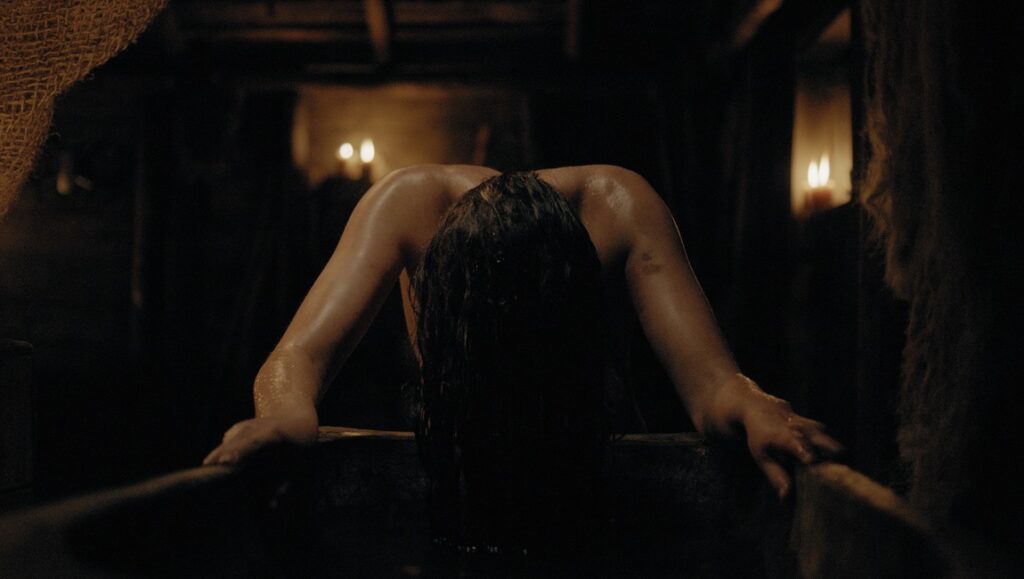Gaia is a masterwork of oppressive mood, a brutal, almost Biblical portrait of creation and destruction.
There’s an ancient, malevolent force living in the depths of the forest in director Jaco Bouwer’s Gaia, a psychedelic bit of eco-horror that finds nature taking over and transforming the human body in hideous ways. Forest Rangers Gabi (Monique Rockman) and Winston (Anthony Oseyemi) are doing their rounds when she hops off their boat to track down a broken drone camera. Winston continues upriver, and the pair become separated. After Gabi is wounded by a hunting trap, she limps into a dilapidated cabin and encounters a couple of strange men, Barend (Carel Nel) and his son Stefan (Alex van Dyk), who live a secluded life hidden away from modern civilization. While Barend tends to Gabi’s wounds, Winston is left alone in the dark, still searching for her. His ultimate fate is only the first of many bizarre, deeply disturbing images that Bouwer and cinematographer Jorrie van der Walt conjure. Barend eventually explains some of the strange goings-on to an incredulous Gabi: there is a living entity within the forest itself, which he believes is preparing for battle against humanity and its encroaching, destructive technology. He and Stefan worship it like a God, and live in a kind of tenuous harmony with it, offering small sacrifices and occasionally fending off infected humanoids that attack without warning (the same creatures that set upon poor Winston). Gabi begins having strange dreams and finds herself also infected, although Barend and Stefan seem to have found a way to treat or otherwise stave off the symptoms. As Gabi becomes more friendly with Stefan, Barend becomes increasingly unhinged, worried that she is tempting his son with her big-city ways and alienating him from their isolated, ritualized way of life.
There’s more to the plot than that, but what Gaia excels at is not story but oppressive mood. The omnipresent sound design of squelches and yelps, alongside the constant thrumming score, all discordant strings and low drones, creates an atmosphere of creeping dread, as the forest comes alive with tendrils and all manner of weaponized flora and fauna. There’s an almost Biblical feel to the proceedings, as Gabi and Stefan take on aspects of Adam and Eve in Eden, while Barend contemplates playing Abraham to Stefan’s Issac. The forest is awash with phallic and vaginal imagery, suggesting a symbiosis between man and nature that man is tearing asunder. Gaia is clearly influenced by Garland’s Annihilation, but Bouwer replaces that movie’s digital, bio-mechanical sheen with a muted palette and emphasis on the physical materiality of stuff — thick, goopy blood, shimmering water, mud, moss, spores, fungi. Meanwhile, the makeup effects are truly astounding, as people transform into organic hybrids and dissolve into beautiful tableaux of colorful but deadly masses of mushrooms and flowers. It’s a terrifying thought, nature defending itself against its own destruction by returning us to a state of primordial ooze from which we first evolved. In the end, there’s no defeating the Earth itself, and humanity will be gone long before bacteria will.
Originally published as part of SXSW Film Festival 2021 — Dispatch 2.


Comments are closed.